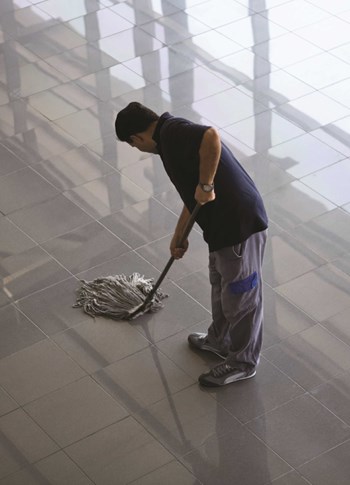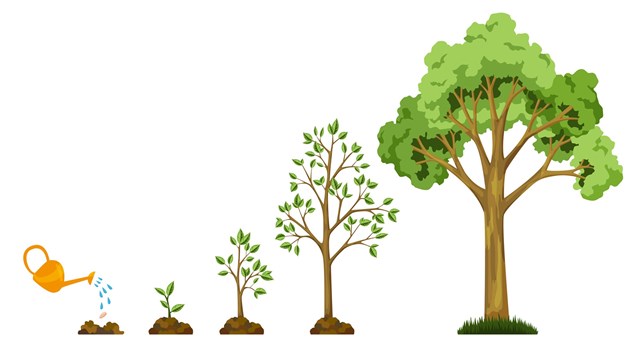
For building owners and managers in the Garden State, winter weather not only refers to the white stuff that falls out of the sky—but rather, the white stuff that collects in a building’s lobby and is also deposited on their many sidewalks, roadways and parking lots. But luckily for these owners and property managers, a variety of services and products exist that can eliminate the headaches caused by the various forms of winter precipitation.
John Fedele of Star Products in Carlstadt says building owners usually utilize their own crews during winter storms, rather than outsourcing to a third party company. However, things like parking maintenance and snowplowing are often outsourced to outside companies due to crew availability.
“Usually the crews have to come in and do some overtime rather than hiring extra crews,” Fedele says. “But the properties and buildings are very large and can be hard to maintain, so they’ll outsource the parking lot part of it.”
However, outsourcing portions of winter weather removal can leave a building owner at the mercy of a third party company’s schedule. Jason Teigman of Hackensack-based GT Dawn Brite says crews can often get backlogged in times of harsh weather.
“Most buildings use their own crews, but many outsource their landscaping or snow removal to an outside company,” Teigman says. “However, it’s more expensive and you may not have immediate service depending on how many clients they have—if they have ten clients, they can’t be there all at the same time.”
Teigman says blocked roadways can also cause delays in third party maintenance, causing building crews to delay their usual activities for snow removal duties. However, utilizing in-house crews often requires much preparation on behalf of the building owner.
“Many building owners have to offer overtime hours to their crews to help with removal, and they buy blow up beds to ensure overnight shelter for their crew during clean-up after a storm,” he says. “They’ll even order in local food.”
Teigman says buildings usually stock up on various equipment in anticipation of harsh winter weather removal. These items include shovels, ice choppers, salt spreaders, snow blowers, gloves, hats and safety vests.
Although outsourcing and investment in chemical products for snow removal can become quite costly, Teigman says this investment can ensure less future legal fees for building owners.
“Some buildings spend thousands on winter weather removal,” he says. “But the risk of their tenants getting hurt is a large one, and doing anything they can saves them money in the long run for prevention against lawsuits in the future.”
For sidewalk snow removal, products such as calcium chloride and magnesium chloride are simple options for building owners’ crews utilize during inclement winter weather.
Calcium chloride, although cheaper than magnesium chloride, does not have the same protective elements in its chemical composition for pet and child safety. Magnesium chloride is also better for exterior concrete maintenance, although calcium is safe for usage in blacktop parking lots.
“Magnesium chloride is a bit safer for pets, especially dogs,” Fedele says. “Sometimes they have a hard time walking on calcium—it can hurt their paws.”
GT Dawn Brite sells a product mixture, which comes in a box rather than a bag (such as that with calcium chloride and magnesium chloride).
“The others are just loose bags, so you either have to use them or not because they harden once you leave the bag out,” Teigman says. “This product doesn’t harden so you only have to use what you need.”
After a storm has passed, Fedele says that exterior residue can be removed with a high pressure hose. He says rain and natural weathering also eventually remove the salt and snow residue from the sidewalks. For interior and lobby building maintenance, Fedele says Star Products makes a chemical rinse which removes ice residue off lobby floors without leaving damage.
Mop-on neutralizers are also a way of removing outside dirt and salt without damaging lobby flooring. “We sell a product for salt removal on marble or tile floors, which can often be scratched or even destroyed by salt tracked in by tenants,” Teigman says. “The neutralizer lifts the salt and does what a neutral clean won’t.”
Floor matting can also come in handy when trying to shield a lobby from salt and snow. “The first steps of dirt can be trapped in those mats, and we even include various types of designs and logos for the mats, all while at the same time protecting their interior,” Teigman says.
As a result of the often nasty weather in during the winter months, many salt and snow removal products can become less readily available during peak times of the year. Buildings’ high demand for these products causes a shortage in supply of chemical cleaners and salt removers, and can cause a rise in the price of any leftover available products. Additionally, producers of cleaning and removal products do not want to under or overproduce a product given the uncertainty of the amount of storms in a season.
“People get cautious because they don’t want to overproduce, but they don’t want to underproduce either, and it’s a tough balance for local distributors,” Teigman says. “It puts wear-and-tear on our trucks and storage, so we try to balance the right inventory.”
In preparation for this shortage, Teigman says that many companies hold pre-season sales to ensure distribution of removal and cleaning products before the winter storms roll in.
“With preseason sales you get a better deal, and this also puts less stress on manufacturers because they know that once a building purchases their products ahead of time, they’re set for the season,” he says. “Companies don’t have to worry about providing anything else for them—in high storm time, salt becomes a commodity.”
Teigman adds that salt distribution on a national level can often be influenced by weather patterns. Because weather usually moves from west to east, cities such as Denver and Chicago often use up national distributor’s products before the northeastern cities have access to them. “Storms always hit the Midwest first, so the Northeast can never really get priority,” he says.
Overall, Fedele says that consistent usage of removal and cleaning products can keep building tenants safer and prohibit dangerous exterior icing. Re-application of products, although tedious, can ensure results on building lobbies and sidewalks.
Fedele says that addressing winter weather removal in a timely fashion can be the key to beating out winter residue removal. “There’s no preventing it, but the sooner you attack it, the better.”
Addressing winter weather in a timely fashion is the key to keeping Mother Nature from causing a major headache for both your building staff and your residents.
Rosie Powers is a freelance writer and a frequent contributor to The New Jersey Cooperator.






Leave a Comment